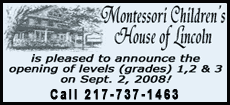 He was an election-night fixture, with his whiteboard and scribbled figures, and was moderator for numerous political debates. He wrote two best-selling books, including the much-loved "Big Russ and Me" about his relationship with his father.
He was an election-night fixture, with his whiteboard and scribbled figures, and was moderator for numerous political debates. He wrote two best-selling books, including the much-loved "Big Russ and Me" about his relationship with his father.
He was NBC's Washington bureau chief.
President Bush, informed of Russert's death while at dinner in Paris, saluted him as "a tough and hardworking newsman. He was always well-informed and thorough in his interviews. And he was as gregarious off the set as he was prepared on it."
NBC interrupted its regular programming with news of Russert's death and continued for several hours of coverage without commercial break. The network announced that Tom Brokaw would anchor a special edition of "Meet the Press" on Sunday, dedicated to Russert.

Competitors and friends jumped in with superlative praise and sad recognition of the loss of a key voice during a historic presidential election year. Known as a family man as well, he had been named Father of the Year by parenting organizations.
Familiar NBC faces such as Brokaw, Andrea Mitchell and Brian Williams took turns mourning his loss.
Williams called him "aggressively unfancy."
"Our hearts are broken," said Mitchell, who appeared emotional at times as she recalled her longtime colleague.
Bob Schieffer, Russert's competitor on CBS' "Face the Nation," said the two men delighted in scooping each other.
"When you slipped one past ol' Russert," he said, "you felt as though you had hit a home run off the best pitcher in the league. I just loved Tim and I will miss him more than I can say."

Russert had been recording voiceovers for this Sunday's "Meet The Press" when he was stricken, NBC said. Russert's internist, Michael A. Newman, said cholesterol plaque had ruptured in an artery, causing sudden coronary thrombosis. Resuscitation was begun immediately and continued at Sibley Memorial Hospital, to no avail.
Newman said an autopsy showed that Russert had an enlarged heart, NBC reported. Russert had been diagnosed with asymptomatic coronary artery disease, which he was controlling with medication and exercise, the doctor said.
Russert, of Buffalo, N.Y., took the helm of the Sunday news show in December 1991 and turned it into the nation's most widely watched program of its type. His signature trait was an unrelenting style of questioning that made some politicians reluctant to appear, yet confident that they could claim extra credibility if they survived his grilling intact.